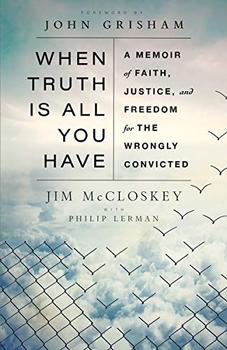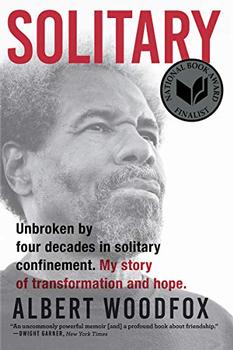Summary | Excerpt | Reading Guide | Reviews | Beyond the book | Read-Alikes | Genres & Themes | Author Bio

It is circumstance that carries the wave that sweeps trendy Houston restaurateur Rafael Zhettah to death row in David R. Dow's taut roller coaster of a thriller. The fact that Dow is a lawyer who has worked with more than a hundred death row clients imbues intimate authenticity into this debut, giving it a spark of life, and even a punch of gallows humor. Did I say roller coaster? I should have said out-of-control train.
It begins with a murdered wife. The bludgeoned body of millionaire Tieresse is discovered by their housekeeper one morning in the beautiful home she and her husband Rafael share. Jewelry is missing. Rafael supposedly had not been home all night. Instead he was wrapped in the arms of a hot, young employee. Rafael is arrested on the spot. He protests. He was not being unfaithful, exactly. They'd had an arrangement. It was OK. Honest. All Rafael's excuses sound lame without Tieresse to back him up, to tell them how much she loved him. Nothing he says rings true. Add to that the fact that they are practically newlyweds and, most damning of all in certain people's eyes, he is a Mexican American. Never mind that he owns and operates a fabulously successful restaurant, and has his own plane and pilot's license. He engages lawyers. Everyone expects this to be a cake walk. However, all the jury sees is a white woman, a dark skinned man and avarice. Before it even fully registers with Rafael that he is on trial, he is found guilty, sentenced to death and carted off to death row.
Aside from the expected ignominies of prison, there's something else few of us may think about - touch. "When prisoners like me talk about being able to touch another human being, we are not talking about sex, or even mainly about sex," Rafael explains, "We are talking about the things you don't notice: how the busboy uses his shoulder as he maneuvers past you to make sure you don't stumble into his path, or how the sous chef places her hand in the small of your back as she passes behind you with a sauté pan of brown butter to make sure you don't get scalded...We're talking about what's invisible until it's gone." (For more information on the psychological toll death row takes on a person, see the article on Death Row Syndrome.)
Rafael passes the time by keeping track of every hour (58,656) he's behind bars. He is assigned a last-ditch defense team. They visit him frequently, always with worse news than previously, until he is reprieved at the very last second. Suddenly a free man, a millionaire from his own and his inherited wealth, he can do anything he likes. Instead of choosing any one of hundreds of options he might desire, Rafael has something else on his mind entirely.
He chooses to punish the system in his own way. To Dow's credit, in his secondary cast of characters there are a variety of inmate and prison guard philosophers, but there are also a fair sprinkling of dolts. There is also plenty to chew on as the United States ponders its commitment to capital punishment (See Beyond the Book). Some states embrace the death penalty, others are giving it up amid impassioned controversy. Dow doesn't spoon feed easy answers, but does enrich the conversation.
![]() This review was originally published in The BookBrowse Review in April 2019, and has been updated for the
April 2020 edition.
Click here to go to this issue.
This review was originally published in The BookBrowse Review in April 2019, and has been updated for the
April 2020 edition.
Click here to go to this issue.

If you liked Confessions of an Innocent Man, try these:

by Jim McCloskey, Philip Lerman
Published 2021
By the founder of the first organization in the United States committed to freeing the wrongly imprisoned, a riveting story of devotion, sacrifice, and vindication.

by Albert Woodfox
Published 2019
Winner of the 2019 BookBrowse Debut Author Award
A chronicle of rare power and humanity that proves the better spirits of our nature can thrive against any odds.
There is no science without fancy and no art without fact
Click Here to find out who said this, as well as discovering other famous literary quotes!
Your guide toexceptional books
BookBrowse seeks out and recommends the best in contemporary fiction and nonfiction—books that not only engage and entertain but also deepen our understanding of ourselves and the world around us.